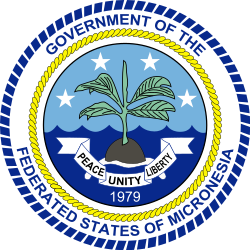Electoral system
The 14 members of Congress are elected by two methods; ten are elected in single-member constituencies by first-past-the-post voting for two year terms. The four at-large Senators are elected on the basis of one from each state, [3] for four year terms
Following the elections, the President and Vice-President are elected by the Congress, with only the four at-large Senators allowed to be candidates. [3]
This page is based on this
Wikipedia article Text is available under the
CC BY-SA 4.0 license; additional terms may apply.
Images, videos and audio are available under their respective licenses.
